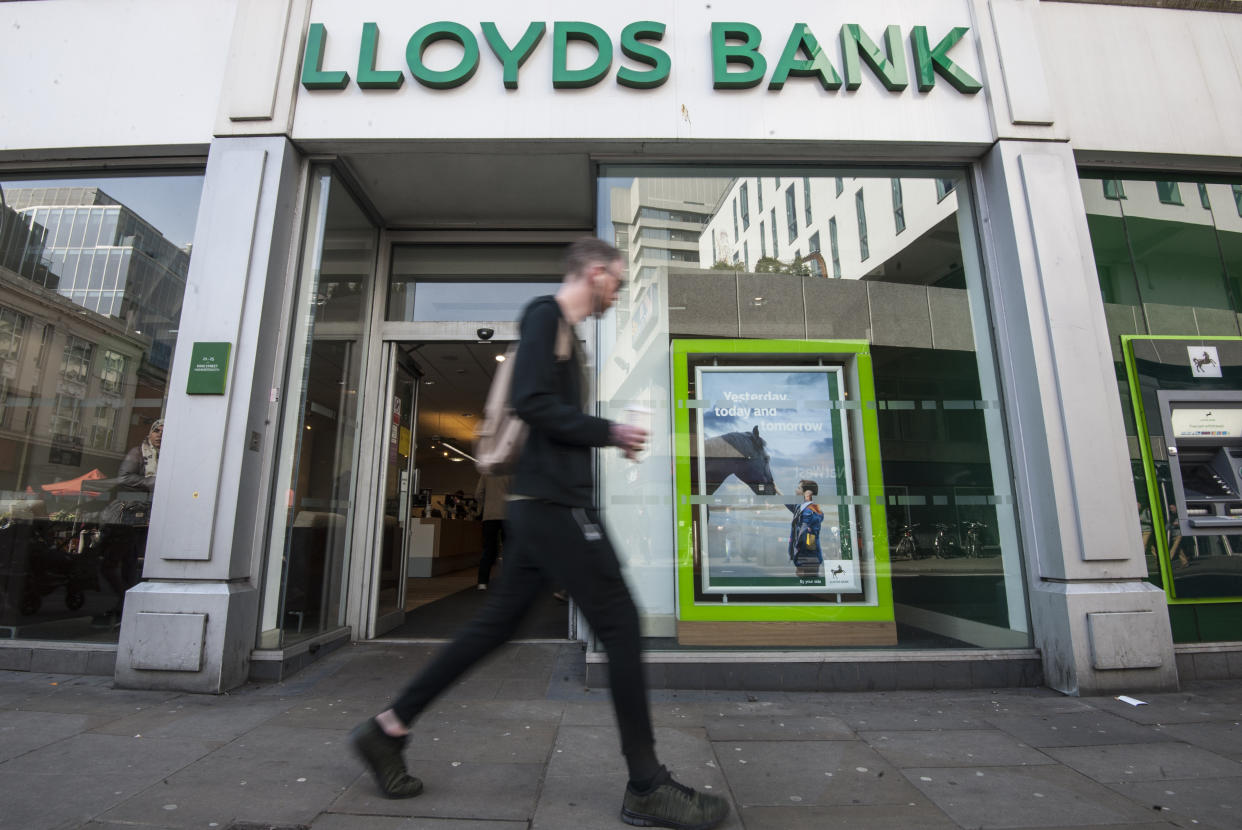Tesco sells 23,000 mortgages to Lloyds Banking Group in £3.8bn deal

Lloyds Banking Group (LLOY.L) has agreed to buy the £3.7bn mortgage portfolio of Tesco (TSCO.L), Britain’s largest supermarket chain said on Tuesday.
Halifax, a subsidiary of the Lloyds group, will pay £3.8bn, or a 2.5% premium, for the 23,000 mortgage loans, Lloyds said.
The move will bolster the position of the banking group, which is already the largest mortgage lender in the UK.
Tesco Bank, the supermarket’s wholly owned retail bank, said in May that it was retreating from the mortgage market, citing tough conditions, and that it would sell its portfolio of mortgage loans.
Lloyds said it would fund the purchase using existing internal resources.
“The sale is in line with Tesco Bank’s strategy of focusing on a reduced number of products and services that serve the broad range of Tesco customers, and will reduce operating and funding costs,” Tesco said in a statement on Tuesday.
READ MORE: Pound hits 34-year low against US dollar after UK general election threats
Tesco earned around £81m in revenue from the loan book in the year to February 28, making a pre-tax profit of about £9m.
While ownership of the portfolio is expected to transfer by the end of the month, Lloyds is not likely to receive the legal title of the loan book until the end of March 2020.
Tesco Bank CEO Gerry Mallon said on Tuesday that the bank was “confident” Lloyds would provide its customers with an “excellent customer experience.”
“Our priority throughout has been to complete a commercially acceptable transaction with a purchaser who will continue to serve our customers well,” he said.
The UK mortgage market has gotten increasingly competitive following the passing of legislation in 2018 that forced banking giants to separate their investment banking arms from their domestic lending businesses.
Known as “ringfencing”, the regulation has encouraged internationally focused groups like Santander, Barclays, and HSBC — which have a glut of customer deposits — to funnel money into mortgage lending.
READ MORE: Lloyds Bank, hit by new PPI charge, sees profits fall 7%
While ringfencing insulates consumers from the impact of a potential banking crash, it has resulted in a mortgage price war, which is pushing down interest rates and forcing smaller operators like Tesco Bank to leave the market.
Lloyds, however, lent £42.5bn in mortgages in 2018, almost 20% more than Nationwide, its nearest competitor.
Underlying profits at the group fell by 1% to £4.2bn in the six months to the end of June, coming in slightly ahead of expectations.
But both pre-tax profits and revenue came in below expectations, and the bank was hit by a larger-than-expected £550m charge related to the payment protection insurance scandal.
Lloyds has spent more on compensation as part of the scandal than any other UK lender.


